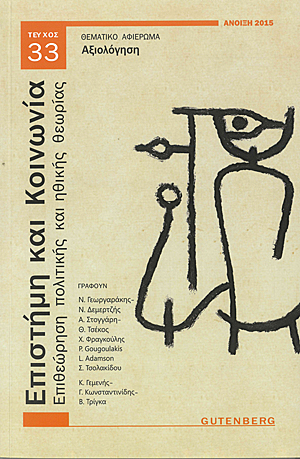New Public Management Regime and Quality in Higher Education

Abstract
A spectre has been haunting the public administration of Western countries –the spectre of New Public Management. This has been all too visible for quite a while, and it coincides with the increasing prevalence of a producing and consuming neo-liberal ideology that has profoundly pervaded all aspects of society, culture and the economy in the current information and globalization era, the dawn of which took place in the early 1970s (Borg & Mayo 2005; Castells 2000; Lengrand 1970). The education sector, and the universities in particular, were no exception. Their alleged autonomy was invaded by neo-liberal ‘forces’ and changed to the point beyond recognition, which has seriously violated the employees’ professional integrity and expertise. As the university gradually transformed into a mass educational institution, without being accompanied by a corresponding increase in resources, the academic staff was constantly reminded that the quality of their work must be raised and ultimately assured. Words and phrases as quality assurance, quality indicators, quality and accountability measures, evaluation, learning outcomes, etc., penetrated academic life without the consent of the majority of the employees. Hence, this discursive shift was a new reality, imposed though from the outside. It is therefore not surprising that disagreement within academic circles and opposition from significant segments of the civil society was at times vehement. The introduction of the new control regime was perceived more as a threat than as a democratic development based on collegial consensus.
In the present text, an attempt is made to approach the notion of quality in higher education through the prism of the New Public Management approach.
The main question being addressed is: What exactly do proponents of New Public Management mean by quality in higher education, what does it entail regarding the staff’s professional integrity and development as well as the assurance of the quality of education offered?
Article Details
- How to Cite
-
Gougoulakis, P. (2016). New Public Management Regime and Quality in Higher Education. Science and Society: Journal of Political and Moral Theory, 33, 91–113. https://doi.org/10.12681/sas.10265
- Section
- Articles

This work is licensed under a Creative Commons Attribution-NonCommercial-ShareAlike 4.0 International License.
Authors who publish with this journal agree to the following terms:- Authors retain copyright and grant the journal right of first publication with the work simultaneously licensed under a Creative Commons Attribution-NonCommercial-ShareAlike License that allows others to share the work, not for commercial purposes, with an acknowledgement of the work's authorship and initial publication in this journal. If you remix, transform, or build upon the material, you must distribute your contributions under the same license as the original.
- Authors are able to enter into separate, additional contractual arrangements for the non-exclusive distribution of the journal's published version of the work (e.g., post it to an institutional repository or publish it in a book), with an acknowledgement of its initial publication in this journal.
- Authors are permitted and encouraged to post their work online (e.g., in institutional repositories or on their website) prior to and during the submission process, as it can lead to productive exchanges, as well as earlier and greater citation of published work (See The Effect of Open Access).


